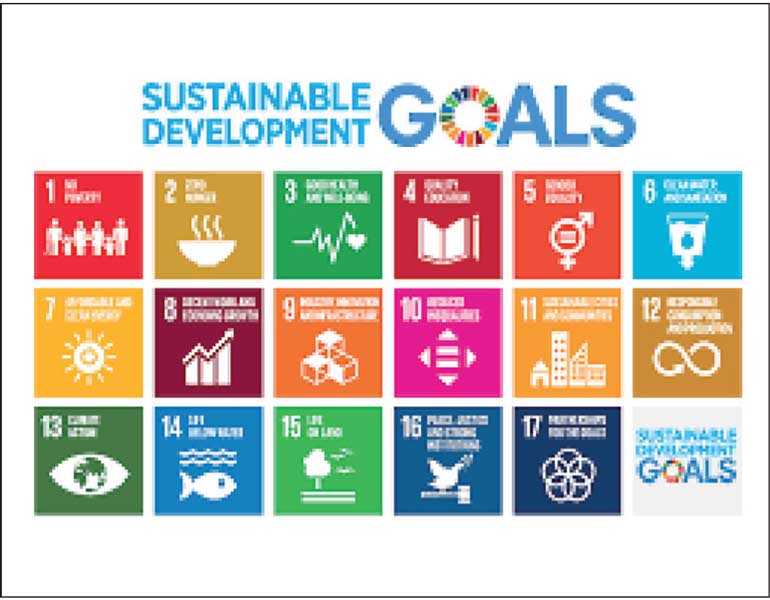Monday Feb 23, 2026
Monday Feb 23, 2026
Monday, 20 January 2020 00:00 - - {{hitsCtrl.values.hits}}
Leading accounting bodies and other organisations last week called for corporate and asset owner action and improved reporting on the UN’s Sustainable Development Goals (SDG) in an attempt to hit goals set for 2030.
The recommendations are detailed in the report ‘Sustainable Development Goals Disclosure (SDGD) Recommendations’ authored by Professor of Accounting Carol Adams, with Durham University Business School’s Honorary Professors Paul Druckman and Russell Picot. 
The report has been published by global accountancy bodies – International Federation of Accountants (IFAC), Association of Chartered Certified Accountants (ACCA), Institute of Chartered Accountants of Scotland (ICAS), Chartered Accountants Australia and New Zealand (CA ANZ), the International Integrated Reporting Council (IIRC) and the World Benchmarking Alliance – and endorsed by the Director of SDG Impact from the United Nations Development Program (UN-DP).
The SDGD Recommendations offer a new approach for businesses and other organisations to address sustainable development issues aligned with the three most influential and popular reporting frameworks. They attempt to establish a best practice for corporate reporting on the SDGs and enable more effective and standardised reporting and transparency on climate change, social and other environmental impacts. The SDGD Recommendations were developed through consultation with accounting and finance professionals, sustainability experts, academics, consultants, framework and standard setters, asset owners and managers and civil society participants.
Responses to the consultation have been published in ‘Sustainable Development Goals Disclosure (SDGD) Recommendations: Feedback’. They show strong support for the alignment of SDGD Recommendations with other key reporting frameworks/standards (those of the Task Force on Climate-Related Financial Disclosures, the Global Reporting Initiative and the International Integrated Reporting Framework). Respondents agreed that accountability for value destruction and negative impacts are critical.
The SDGD Recommendations call on organisations to consider sustainable development risks and opportunities relevant to their long term value creation strategy and communicate the actual or potential impacts on the achievement of the SDGs. This will require relevant and material disclosures about the factors that influence long term value creation (or destruction) for the organisation and society or that have an impact (positive or negative) on the achievement of the SDGs in the annual report.
Professor Carol Adams says: “There is increasing awareness in both business and investment communities that the health and wellbeing of the planet and its people impact the longer term success of business. The SDGs offer an opportunity to collaborate and address this. A change in what and how business is done is essential for the achievement of the SDGs. The key to driving change is the requirement for a statement from the board chair that the board accepts responsibility for the SDG Disclosures in the annual report.”
These recommendations are built upon a suggested five-step approach for contributing to the SDGs aligned with long-term value creation, previously developed by Professor Adams and published by the IIRC and ICAS.
UNDP Director Elizabeth Boggs-Davidsen said: “To achieve the SDGs, companies and investors will need to move away from mapping existing activities to the goals, to a more integrated practice of directing and disclosing on investment activities that create more impact and contribute to progress towards the SDGs.”
World Benchmarking Alliance Executive Director Gerbrand Haverkamp said: “Without companies aligning their business models and operations with the SDGs they simply won’t be achieved. We therefore need to work together in translating scientific and societal expectations into clear reporting guidance for companies. This will create the data that the World Benchmarking Alliance and others can use to assess and rank corporate performance in a manner that is transparent and free for everyone to see.”
International Federation of Accountants (IFAC) CEO Kevin Dancey said: “Achieving the SDGs requires dedication from businesses, and the urgency continues to grow. We fully support global best practices that enable effective, transparent reporting on sustainability measures. It’s imperative that we act together and that we act now to secure a sustainable future.”